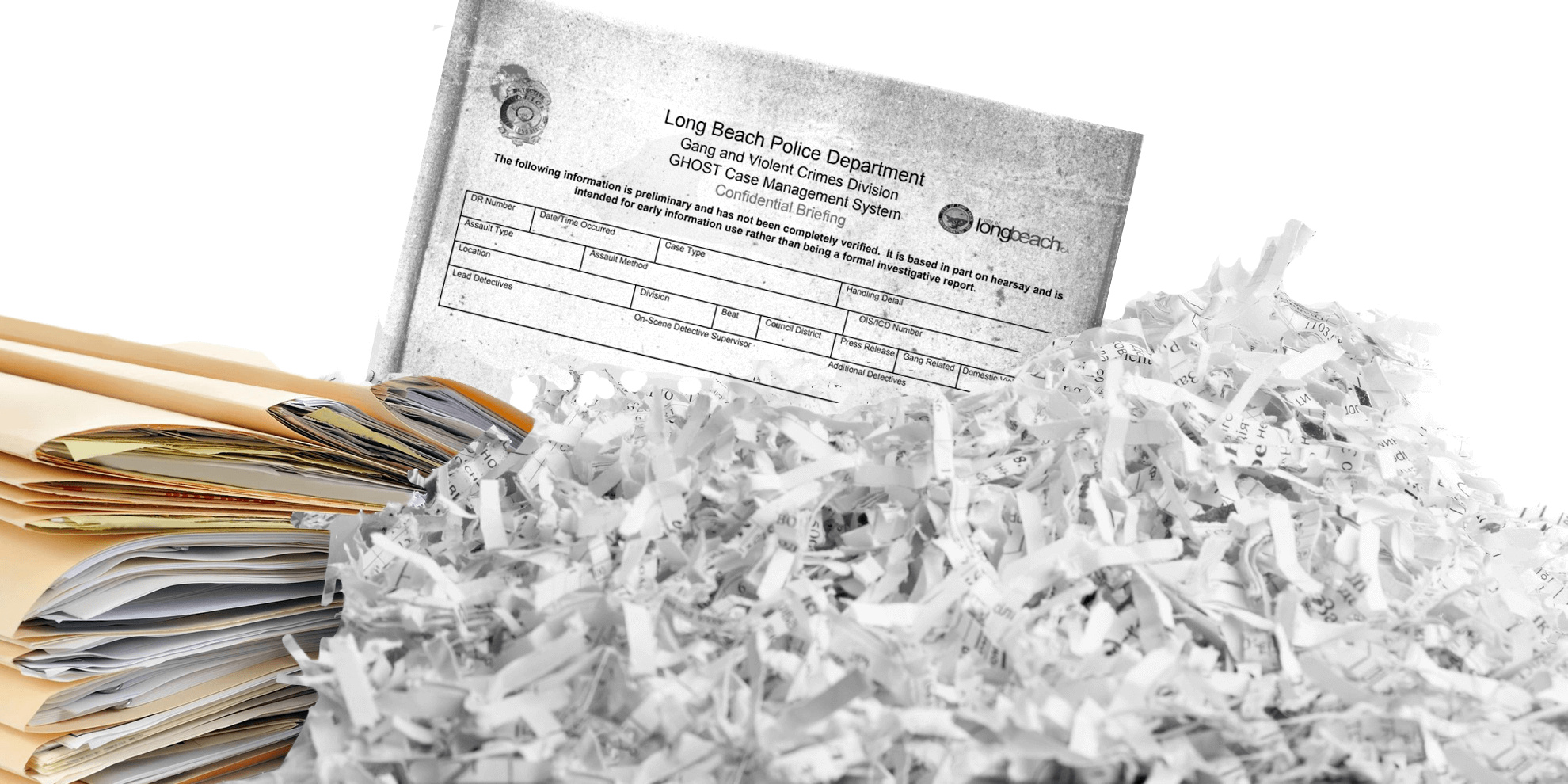LBPD Records Destruction Item Pulled From Next Week’s City Council Agenda
3 minute readLong Beach police internal review records from 2014 have been saved from the shredder, at least for now.
A request to destroy the documents was pulled from next week’s City Council meeting agenda because the department is “currently reviewing all of our processes to ensure the highest level of transparency,” LBPD spokesperson Arantxa Chavarria said in an email.
She added that going forward “eligible records will not be destroyed until we review our processes.”
The records that had been slated for destruction include documents related to use-of-force, policy compliance, forced entry, and internal affairs complaint investigations.
The move comes amid growing pressure from the public and lawmakers for greater police transparency and accountability.
A string of protests in Long Beach—part of hundreds of demonstrations around the globe—against police violence sparked by the death of George Floyd in Minneapolis has forced local elected officials to reckon with the city’s own history of police misconduct.
On Tuesday, the City Council responded with a “Framework for Reconciliation,” a set of steps designed to root out institutional racism from city government, including the police department. Part of that process is an analysis of police use-of-force data going back 10 years.
Tomisin Oluwole
Coquette
Acrylic on canvas
18 x 24 inches
Click here to check out our interview with Tomisin Oluwole, a a literary and visual artist based in Long Beach.

Instead of gunking up our site with ads, we use this space to display and promote the work of local artists.
“I want to make sure we are building transparency and trust with our police department and that’s going to take them sharing everything they can,” Councilmember Jeannine Pearce said before Tuesday’s vote.
Although the destruction request complied with the California Public Records Act, which requires a five-year retention period for these types of records, outcry on social media over the timing of the potential documents destruction prompted at least one councilmember to address it directly.
“I’d say pull all police records from being destroyed until the council reviews and updates their record retention policy,” Pearce responded to one such post on Facebook this morning. “We should partner with the (American Civil Liberties Union) to learn best practices.”
In an email, Councilmemeber Suzie Price said Sunday, “I agree that we should be retaining police use of force records as long as feasible and permissible under the current law.”
Like records destruction requests from other city departments, this one was placed on a portion of the City Council’s meeting agenda called the consent calendar. The consent calendar ostensibly serves as a place for routine and non-controversial items that therefore don’t get public discussion before being voted on, unless it’s requested by the mayor, a councilmember, or the city manager.
The LBPD has previously drawn criticism for their timing of records destruction. In late 2018, FORTHE Media first reported that the LBPD purged a 23-year backlog of police misconduct records days before a statewide police transparency law, SB 1421, went into effect. That law would have given the public access to at least some of those records. The council gave the go-ahead during the last meeting of the year. The LA Times reported on a similar action taken in Inglewood.
We reached out to all nine councilmembers for comment, but we didn’t immediately receive any responses. This story will be updated if we hear back.
Updated June 17, 2020 with comment from Councilmember Suzie Price.


 kevin@forthe.org
kevin@forthe.org @reporterkflores
@reporterkflores




